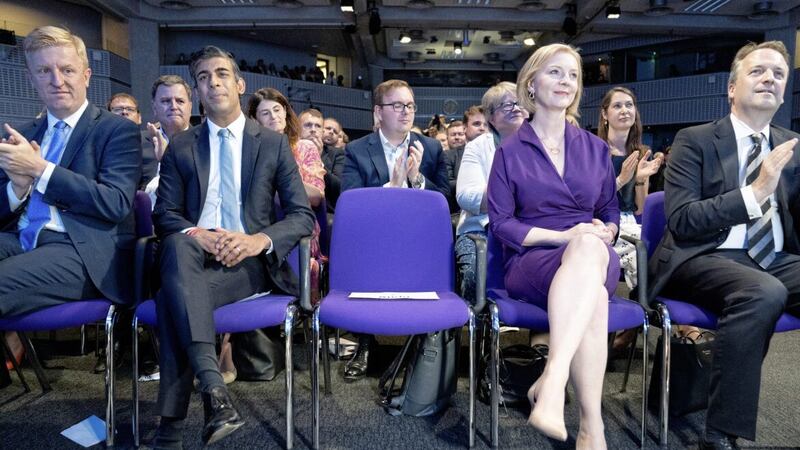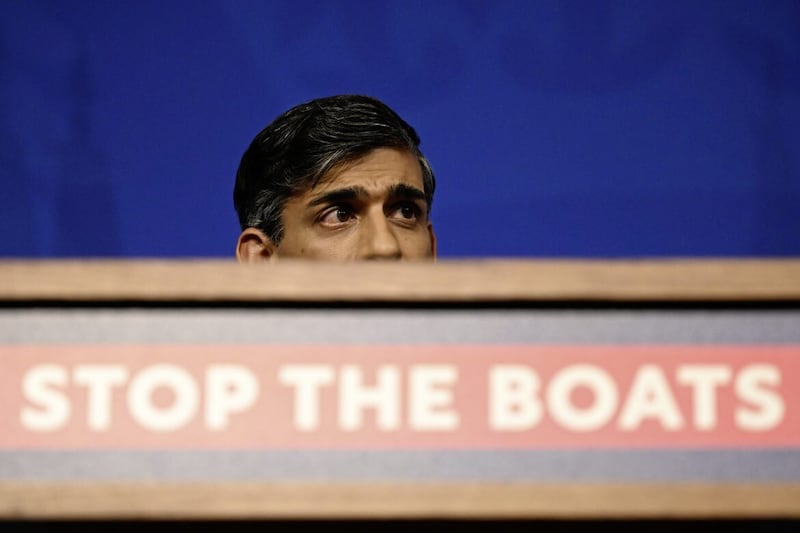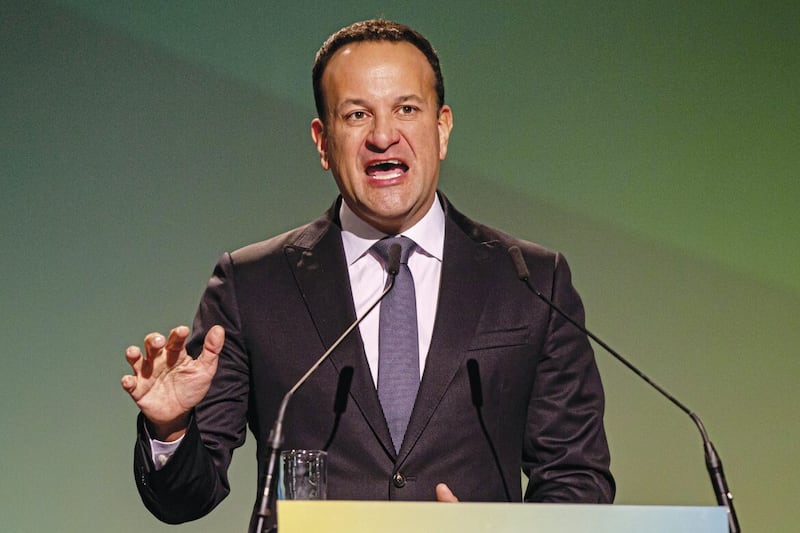On Monday as I watched the announcement that Liz Truss had been elected as the new leader of the Conservative Party, I found her reaction to the news somewhat strange.
Her husband, Hugh O’Leary, sat to her left and her opponent Rishi Sunak two seats away to her right and when the announcement was made, she took her victory speech from her husband’s hand and mounted the podium to deliver it.
There was no kiss, no hug, not even a squeeze of the hand for her husband of 22 years, nor was there a handshake of commiseration for Sunak. It was five seconds which reveals a lot for me about what we can expect from her premiership. Number 10 Downing Street is set to be a cold house for a lot of people.
I am not for one moment gender stereotyping Liz Truss in this regard, it’s nothing to do with whether she is male or female and everything to do with whether or not she is respectful of the people around her.
Perhaps I am expecting too much of the woman who, when asked whether she thought French President Emmanuel Macron was Britain’s friend or foe replied that the jury was still out.
But I do think that the leader of a country should observe social conventions and that includes a handshake for the loser in the race and a bit of respect, publicly at least, for the leader of another country.
It has been interesting to watch in the last couple of days as well the repetition of the fact that Liz Truss is the third female leader of the Conservative Party and third female British Prime Minister, as if this were some sort of wonderful, progressive thing.
But progress is as progress does. The leader of a country being a woman does not mean that other women will automatically benefit.
As foreign secretary and minister for women and equality, Truss visited Belfast in January this year to meet business and community groups to discuss the protocol. In her self-promotion video clip of the trip, it does not appear that she met with one woman, which is odd considering she was not just foreign secretary but also minister for women and equality at the time.
The first two resignations from Cabinet following her election as party leader and prime minister were of home secretary Priti Patel and culture secretary Nadine Dorries. You don’t get the sense there’s much of a sisterhood in the Tory party at all.
Women as political leaders may demonstrate gender equity based on the simple fact that that they have got elected, but that alone does not mean they have made a positive difference for other women. For women political leaders to make an impact, they have to use their position to empower other women. It’s not enough to just be there and say others can aspire to the same.
Crucially, they have to use their agency to make a difference for women through legislative change. A recent example of this in our own orbit was the passing of former Green Party leader Clare Bailey’s safe access zones legislation which made sure that women could access reproductive healthcare without having to run the gauntlet of protesters.
Based on Truss's record of voting 48 times to cut welfare benefits alone, something that has a disproportionately worse impact on women who tend to having caring responsibilities and work shorter hours outside the home as a result, it’s not looking good for improving gender equality under her watch.
On the one hand, the new leader appears to revel in the comparison with Margaret Thatcher. She’s a grammar school girl with a good education who distrusts career civil servants and is, in her own words “a bit relentless.” But she also dislikes the comparison, saying when asked that she did not accept the similarities and that she was her own person.
The key difference between Thatcher and Truss is that whilst Thatcher stood by her convictions, Truss has not. After campaigning to remain in the EU she is now the champion of getting Brexit done, and that is only one of many U-turns. She just comes across as too opportunistic to command respect.
I always thought of Arlene Foster as Thatcher-lite when she was leader of the DUP. She wanted to be able to impose her will on the party but she just couldn’t control the Westminster wing who basically did their own thing and continually briefed against her with the party grassroots.
It’s a contrast to the leadership styles of Naomi Long and Michelle O’Neill in Stormont who nurture and encourage female talent, as evidenced by our latest crop of MLAs anxiously waiting to be let loose on legislative change. Their approval ratings in polls are consistently higher than those of male party leaders.
The absence of any reference to the north in Liz Truss's acceptance speech will be a red flag to unionism that is looking for an anti-EU ally in her, but it should give impetus to the other assembly parties to lobby hard to get Stormont re-established, or for the secretary of state to call a fresh election in October.
It is going to be an interesting couple of months.








